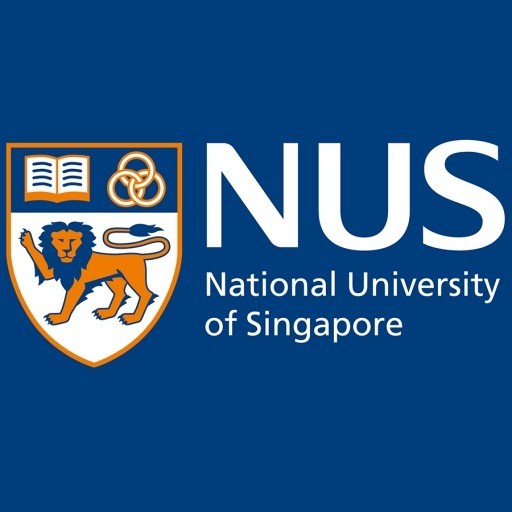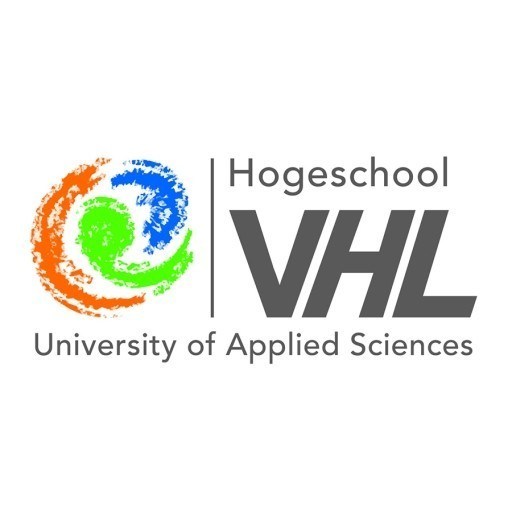Photos of university / #nus_singapore
Supply Chain Management (SCM) at the National University of Singapore offers a comprehensive and rigorous program designed to equip students with the essential skills and knowledge to excel in the dynamic field of supply chain operations and logistics. The curriculum integrates theoretical foundations with practical applications, covering vital areas such as procurement, inventory management, transportation, distribution, and supply chain analytics. Students will gain an in-depth understanding of global supply chain strategies, risk management, and sustainability practices, preparing them to address complex challenges faced by organizations worldwide. The program emphasizes the development of critical thinking, problem-solving, and decision-making skills through case studies, simulations, and industry projects, enabling graduates to contribute effectively to the design and management of efficient supply networks. With access to state-of-the-art facilities and close collaborations with industry leaders, students are encouraged to engage in internships and research opportunities that enhance real-world experience. Graduates of the Supply Chain Management program are well-positioned for careers in logistics firms, manufacturing companies, retail giants, and consulting agencies, among others. The program also provides a strong foundation for those interested in pursuing advanced studies or research in supply chain management and related disciplines. By combining academic excellence with practical relevance, the Supply Chain Management program at NUS prepares students to become innovative leaders and strategic thinkers capable of optimizing supply chain performance in an increasingly interconnected global economy.
All candidates (full-time or part-time) are required to complete 40 modular credits (MC) over 8 coursework modules (3 core and 5 elective) plus a research project module (LI5001). All modules carry 4 modular credits each unless stated otherwise.
| CORE MODULES(Compulsory) | ELECTIVE MODULES(Choose 5) |
|---|---|
|
Set 1 - Industrial & Systems Engineering Modules (Choose at least 1)
|
Graduating students may register for the Research Project module (LI5001) only after they have completed 16 modular credits of coursework in this programme. Please read the instructions for registration of LI5001 here.
Students are advised to take note of pre-requisite and preclusion requirements in their consideration of enrolling for elective modules.
Pre-requisite :
- * IE5108 has a pre-requisite of IE5001
- * DSC5211C has a pre-requisite of DSC5211B
Preclusion
- # IE5001 and BDC5101 are mutually precluded.
Workload Per Semester
For Full-Time students: 12 MC to 20 MC
The normal load for full-time student is 16 MC. Overload of up to 20 MC is allowed only upon approval by the Programme Director. Full-time students who wish to read less than 16 MC should seek academic advice from the Programme Director.
Admission into the M.Sc. (SCM) programme is on a competitive basis. Applicants meeting the minimum requirements below are invited to apply for admission:
- At least an Honours (with Merit) degree or equivalent in Engineering, Science, Computing, Mathematics, Business Administration or any related discipline.
- Those with at least 2 years of working experiences in the Logistics/Supply Chain Management industry will be considered favourably under discretionary admission.
- Test Of English as Foreign Language (TOEFL) or International English Language Testing System (IELTS).
- Applicants who graduated from Universities where English is not the main medium of instruction (e.g. China, Myanmar, Indonesia, etc) are required to demonstrate their English proficiency by means of TOEFL / IELTS test scores.
- Applicants can either:
- (a) submit photocopies of their Test Of English as Foreign Language (TOEFL) or International English Language Testing System (IELTS) scoresheets; or
- (b) request Educational Testing Services (ETS) to send original TOEFL scores to NUS.
- The minimum score expected is:
- i. 600 (for TOEFL paper-based test); or
- ii. 250 (for TOEFL computer-based test); or
- iii. 92 (for TOEFL internet-based test); or
- iv. 6.5 score for IELTS.
- Candidates who do not submit an official TOEFL/IELTS score by the application closing date will not be considered.
- The non-refundable online application fee is S$50.00 per application (inclusive of prevailing GST).
The National University of Singapore offers various financial aid options for students enrolled in the Bachelor of Science in Supply Chain Management program. Funding opportunities include scholarships, bursaries, and loans designed to support both local and international students. Scholarships such as the NUS Institutional Scholarships and special awards for academic excellence are available, which may cover tuition fees partially or in full, depending on eligibility criteria and program performance. Bursaries are provided based on financial need, aiming to assist students from diverse socioeconomic backgrounds in reducing their educational expenses. Additionally, the university participates in government loan schemes that offer favorable repayment terms to eligible students. Students are encouraged to apply early and submit necessary documentation for financial assessment. Moreover, some students may qualify for external scholarships provided by industry partners or government agencies, which recognize academic achievement and leadership potential in the field of supply chain and logistics management. The university also offers installment payment plans to help distribute the cost of tuition over the duration of the program, making it more manageable for students to finance their education. Financial aid eligibility typically requires students to maintain satisfactory academic progress and meet specific enrollment criteria. Financial planning resources are available through the university’s Student Financial Services, which assist students in exploring all possible funding avenues and understanding the terms and conditions associated with each option. Overall, NUS aims to ensure that financial constraints do not hinder capable candidates from pursuing their interests in supply chain management, providing comprehensive support to facilitate access to quality education in this dynamic field.
The Bachelor of Science in Supply Chain Management at the National University of Singapore is designed to equip students with a comprehensive understanding of the principles and practices involved in managing the flow of goods, information, and finances across the entire supply chain. The program emphasizes a multidisciplinary approach, integrating knowledge from engineering, business, and information systems to prepare graduates for the dynamic and complex world of supply chain operations. Students in this program learn about procurement, logistics, inventory management, transportation, and supply chain strategy, gaining critical skills to optimize efficiency and reduce costs. The curriculum combines theoretical foundations with practical applications, including case studies, project work, and industry collaborations, to ensure students are well-prepared for real-world challenges. The program also highlights the importance of technological innovations in supply chain management, such as the use of data analytics, automation, and digital platforms, to enhance decision-making processes. Graduates of the program are equipped to pursue careers in various sectors, including manufacturing, logistics, retail, and consulting firms, where they can take up roles such as supply chain analyst, logistics manager, procurement specialist, or operations manager. The university maintains strong ties with industry partners, providing students with internship opportunities and exposure to cutting-edge practices. The program is tailored to address current global supply chain issues, including sustainability, risk management, and resilience, making graduates adaptable to changing market conditions. The faculty comprises experts in supply chain management, operations research, and business analytics, ensuring a rigorous academic experience. Overall, the program aims to develop analytical thinkers and effective communicators who can innovate and lead in the evolving landscape of global supply networks.






